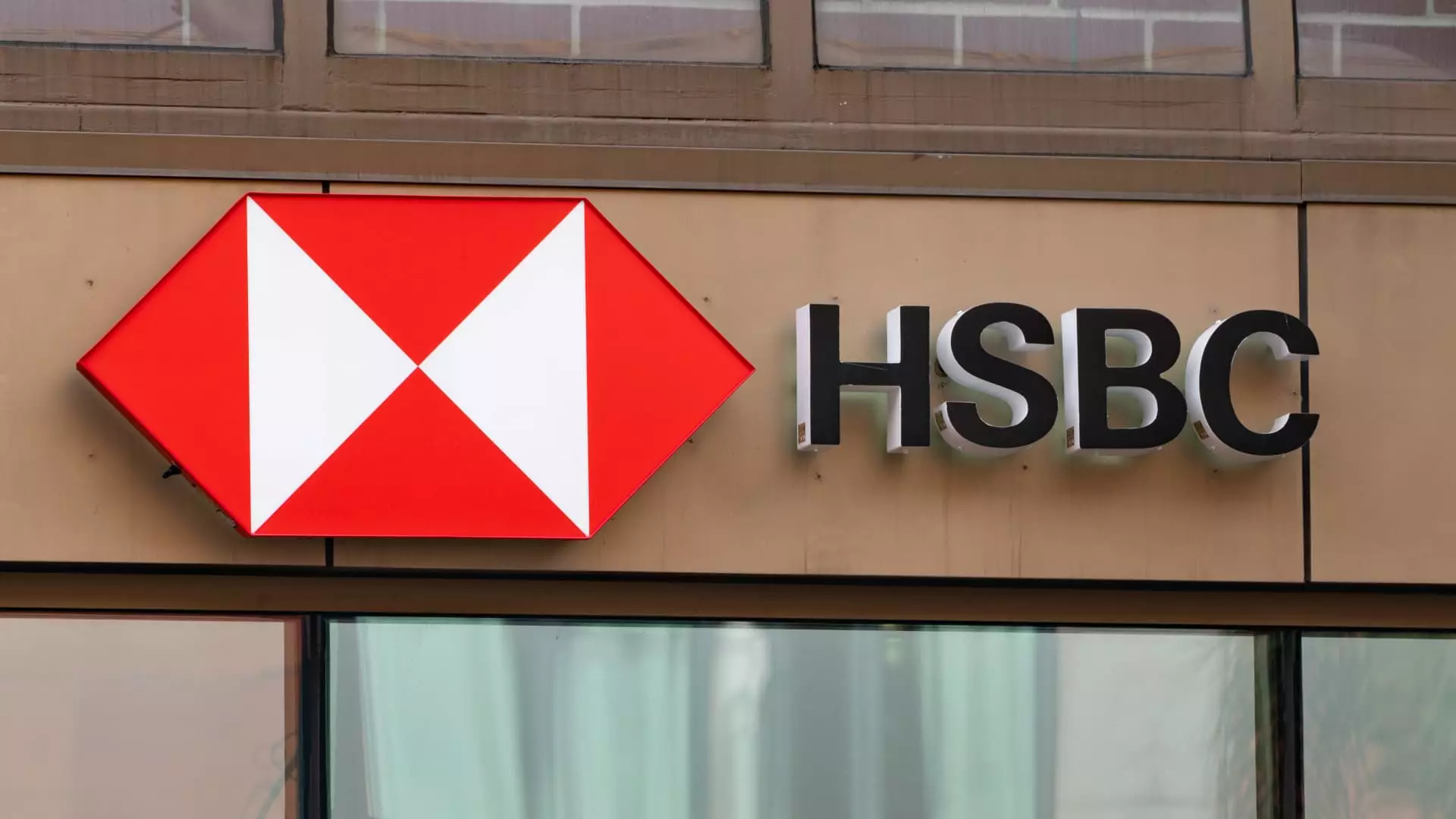The financial sector is no stranger to evolution, and HSBC’s recent announcement illustrates how the bank is redirecting its strategy in response to changing market dynamics. This comprehensive restructuring is emblematic of the broader challenges facing banks worldwide, particularly in the wake of the COVID-19 pandemic, and reflects HSBC’s ambition to reach new heights in an increasingly competitive environment.
On Tuesday, HSBC revealed a new operational structure that consolidates its various services into four distinct business units. This move marks a significant shift in the bank’s approach, as it seeks to combine and enhance its capabilities. According to their recent filings with the Hong Kong Stock Exchange, the bank will now categorize its operations into “Eastern markets” and “Western markets.” The first will encompass Asia-Pacific and the Middle East, while the latter includes the non-ring-fenced U.K. bank along with European and American operations. This geographical division is largely seen as a strategic maneuver to focus on high-growth markets while enhancing operational efficiency.
The implications of this restructuring resonate far beyond mere organization; it represents a recalibration of HSBC’s focus and resources. By leaning into the strengths of specific regions, the bank is ideally positioning itself for more targeted growth strategies that can adapt to local market conditions. Furthermore, this restructuring is crucial given the pressures of global competition and the recent calls from major stakeholders like Ping An, HSBC’s largest investor, for a dedicated focus on Asian markets.
In addition to the geographic split, HSBC has indicated a push for operational efficiency. The aim is to diminish redundancy in processes and facilitate faster decision-making, which has been a common pain point for large organizations. As HSBC transitions into its new streamlined operations come January, it will encompass four primary divisions: Hong Kong, the U.K., international wealth management, and corporate and institutional banking.
Critics and analysts have highlighted the potential challenges inherent in such a significant restructuring. Research from UBS points out the considerable costs associated with harmonizing the functions of an organization as vast as HSBC, which employs over 213,000 people globally. The complexity of merging different business lines and aligning them under a unified strategy cannot be understated, particularly in a volatile economic climate.
The timing of HSBC’s overhaul coincides with a backdrop of strong financial performance, particularly in the first half of the year when the bank posted a pretax profit of $21.56 billion. This impressive figure reflects the benefit HSBC has encountered from higher interest rates, a common theme for banks as they rebound from the pandemic. However, with the European Central Bank’s recent shift toward loose monetary policy, HSBC and its peers may soon lose some of that financial support.
Despite these uncertainties, HSBC remains committed to investing in its future through strategic initiatives and cost-cutting measures. Under new leadership—specifically the upcoming appointment of Pam Kaur as Chief Financial Officer—HSBC is poised to re-evaluate its priorities. Kaur’s prior role as group chief risk and compliance officer places her in a unique position to guide HSBC through its restructuring with a focus on sound governance and financial prudence.
Ultimately, HSBC’s reorganization signals a pertinent transition in its operational strategy, aimed at refining its approach to both Eastern and Western markets. While the organization grapples with the complexities of unifying its functions and navigating a shifting economic landscape, the emphasis on agility and responsiveness could serve to enhance their market positioning in the longer term. As the financial landscape evolves, HSBC’s ability to implement effective restructuring will be integral to its success, especially amid a backdrop of fluctuating interest rates and new monetary policies. This deliberate strategic shift may well define HSBC’s next chapter within an ever-changing global financial context.

